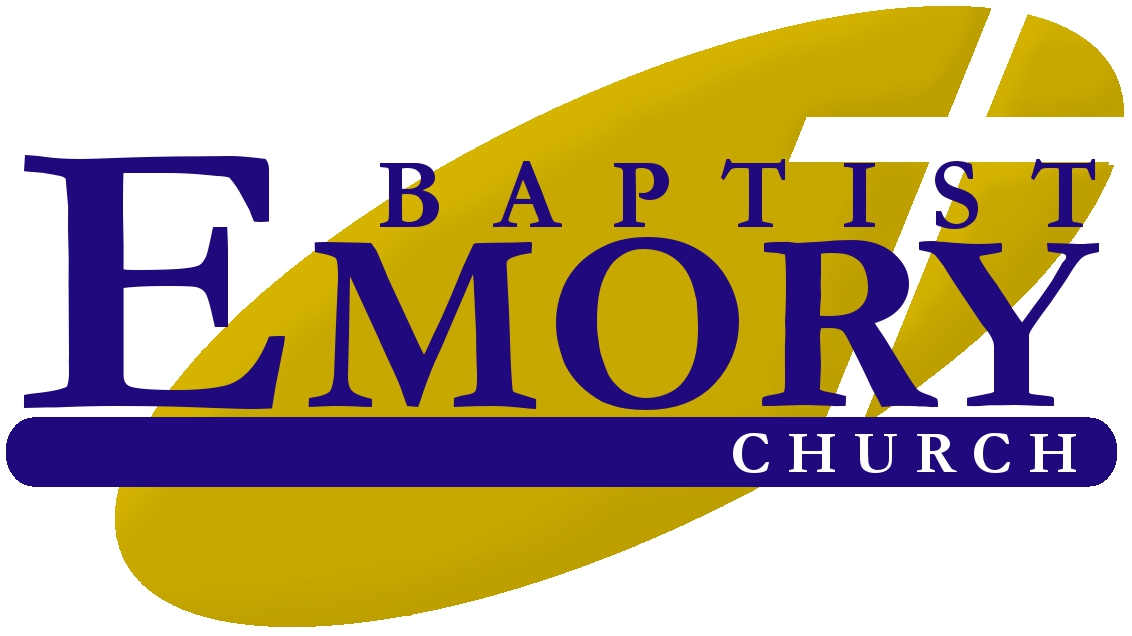Episodes

Wednesday Jan 17, 2024
What Shall We Do?
Wednesday Jan 17, 2024
Wednesday Jan 17, 2024
The title of my message this morning is a question that is asked on three different occasions and by three different groups of people in our text for this morning. It is a question that all of us should ask after we hear a sermon or a Bible study. The question is, “What shall we do” or “What shall we do in response to what we have heard?”
Today, we continue in Luke’s gospel, and we are fast forwarding 18 years. Last week, Jesus was 12. This week, we briefly turn out attention to John the Baptist, and the next time we see Jesus in Luke 3, He will be 30 years old.
As we begin, I want to share a truth with you and then spend the rest of our time defending or supporting this truth. Here it is, “If you are not willing for your life to change, you are not ready to follow Jesus.”
- The Preparation by the Messenger, Luke 3: 1-6
1 Now in the fifteenth year of the reign of Tiberius Caesar, Pontius Pilate being governor of Judea, Herod being tetrarch of Galilee, his brother Philip tetrarch of Iturea and the region of Trachonitis, and Lysanias tetrarch of Abilene, 2 while Annas and Caiaphas were high priests, the word of God came to John the son of Zacharias in the wilderness. 3 And he went into all the region around the Jordan, preaching a baptism of repentance for the remission of sins, 4 as it is written in the book of the words of Isaiah the prophet, saying: “The voice of one crying in the wilderness: ‘Prepare the way of the Lord; Make His paths straight. 5 Every valley shall be filled And every mountain and hill brought low; The crooked places shall be made straight And the rough ways smooth; 6 And all flesh shall see the salvation of God.’”
In Luke 3, John the Baptist is now 30 years old. That is six months older than his cousin, Jesus.
It has often been said that John the Baptist was the forerunner or the announcer or the messenger of Christ. First of all, notice the moment.
In verses 1-2, Dr. Luke gave the historical setting. It was AD 29. While not meaning much to us, we are reminded once again of the Bible’s trustworthiness demonstrated by Luke’s attention to detail.
At the end of verse 2, we see the man. This messenger was a man sent from God with the word of God, and is none other than John the Baptist, son of Zacharias and Elizabeth that we met in Luke 1.
Next, in verses 3 and following, notice his method. John the Baptist was to make ready the way for Jesus. He was to prepare the people for the coming Messiah, and he did that through preaching a very bold and convicting message like OT prophets.
In describing how John would prepare the way as the messenger, Luke quoted from Isaiah 40:3-5. He was to make the paths straight and as free from obstacles as possible. The ravines were to be filled, and the mountains were to be flattened. The curves were to be made straight, and the rough roads were to be made smooth. The image here is of a monarch who would send a crew of workman ahead of him in order for them to literally prepare the roadway for the king to travel safely and efficiently.
John the Baptist was to make ready the way for Jesus. He was to prepare the people for the coming Messiah, and John’s announcement was not just to Jews, but to Gentiles as well. Notice verse 6. All flesh, both Jew and Gentile, will see the salvation of God.
Before we leave this first six verses, let’s talk about John’s baptism. The word baptism means to submerge all the way in water and coming all of the way out of the water.
We’ll talk more about baptism next week as we look at Jesus’ baptism, but the word is very specific in spite of what our Catholic, Methodist, and Presbyterian friends believe. It literally means to immerse or dip. It does not mean to sprinkle.
Also, John’s baptism was one that symbolized repentance. Repentance means to change your mind and turn around. It has an internal component and an external component.
For example, to repent of taking illegal drugs would include the belief that illegal drugs are wrong to take. That is the changing of the mind.
However, it would also include the action of abstaining from using any illegal drugs. It is a change of mind that leads to a change of action.
Finally, notice one more component. John’s baptism was a baptism of repentance that led to a forgiveness of sins.
This phrase implies that someone has been offended, and that someone is God. Our sins have offended Him because He is holy, and that which is unholy or sinful is offensive to God.
When we sin, we sin against Him and are in need of His forgiveness. Therefore, John is preaching repentance. Again, that means changing your mind and changing your actions or changing your belief that leads to changing your behavior.
However, please know this. It is not baptism that leads to forgiveness of sins. It is the repentance or the willingness for your life to change or repent that results in forgiveness of sins.
- The Explanation of His Message, Luke 3:7-9
7 Then he said to the multitudes that came out to be baptized by him, “Brood of vipers! Who warned you to flee from the wrath to come? 8 Therefore bear fruits worthy of repentance, and do not begin to say to yourselves, ‘We have Abraham as our father.’ For I say to you that God is able to raise up children to Abraham from these stones. 9 And even now the ax is laid to the root of the trees. Therefore, every tree which does not bear good fruit is cut down and thrown into the fire.”
Gathering around to hear John’s preaching was a multitude of folks including many orthodox Jews. He called them a “brood of vipers.” Today, that would be like calling someone a “snake in the grass.” They probably also took it personally remembering Genesis 3 very well. John was calling them children of the devil.
Notice what John said next. He told them that their repentance not only needed to be demonstrated in baptism but also in fruits or proof or actions.
By their words, they obviously thought being Jewish was enough to earn God’s favor and ultimately His forgiveness of sins. John reminded them that wasn’t true. They couldn’t ride anyone else’s coattails then, and we can’t today.
Let me know say a strong word to my brothers and sisters of Emory Baptist Church. If you are hanging your salvation on the phrase “once saved, always saved,” you might very well will spend an eternity in hell separated from Christ.
When God Almighty asks why He should let you into the Kingdom of Heaven, if your answer is you were a member of Emory Baptist Church or baptized as a kid, you are going to be eternally disappointed.
John said in verse 9 that the axe was already laid at the root of the trees, and every tree that does not bear good fruit is cut down and thrown into the fire. Repentance must bear fruit or it isn’t repentance and without repentance you will not see heaven.
- The Application for the Multitudes, Luke 3:10-14
10 So the people asked him, saying, “What shall we do then?” 11 He answered and said to them, “He who has two tunics, let him give to him who has none; and he who has food, let him do likewise.” 12 Then tax collectors also came to be baptized, and said to him, “Teacher, what shall we do?” 13 And he said to them, “Collect no more than what is appointed for you.” 14 Likewise the soldiers asked him, saying, “And what shall we do?” So he said to them, “Do not intimidate anyone or accuse falsely, and be content with your wages.”
Within the multitudes that came to hear John preach, three groups asked, “What shall we do?” In other words, how should John’s message be applied to their lives.
The first group is in verses 10-11. John said demonstrate generosity and kindness. The man who has two tunics or coats is to share with the man who has none. You can’t wear more than one tunic at a time. The same is true for food. Be generous. Be generous and kind and share with those in need.
The second group was tax collectors and found in verses 12-13. These were Jews working for the Roman government and collecting taxes for them and a little for themselves from their own countrymen.
They were hated for working for the Romans. They then taxed more for people hating them. They were then hated more for taxing more. It was a vicious cycle.
When they asked what to do, John said collect only what you are ordered to collect. Be honest and just and don’t collect more than is owed. Brothers and sisters, live your life with honesty and integrity, and treat others how you want to be treated.
The third group were soldiers, and they asked what they were to do. John said don’t take money from anyone by force and learn to be content with your pay. We Christians so need to hear this and live out contentment in a consumer-driven, materialistic world.
Conclusion
So let’s go back to our original summary statement or main truth that I shared in the beginning. If you aren’t willing for your life to change, you are not ready to follow Jesus. That was John’s message.
Therefore, what about you? Are you willing for your language to change? Are you willing for your marriage to change? Are you willing for your attitude to change? Are you willing for your spending to change? Are you willing for your schedule to change?
Here is what I mean. Instead of trusting your morality or your heritage or your intelligence to save you, are you willing to change and trust Jesus to save you?


No comments yet. Be the first to say something!